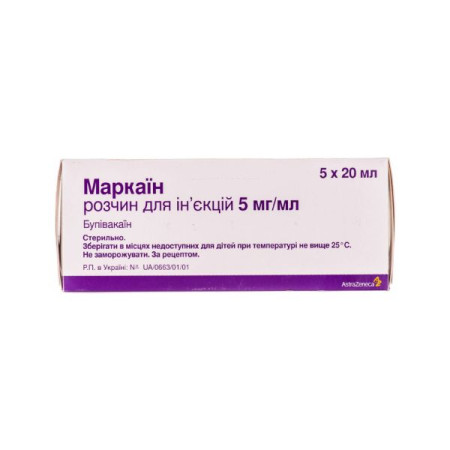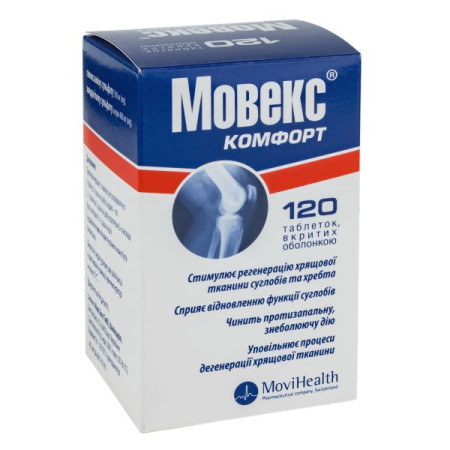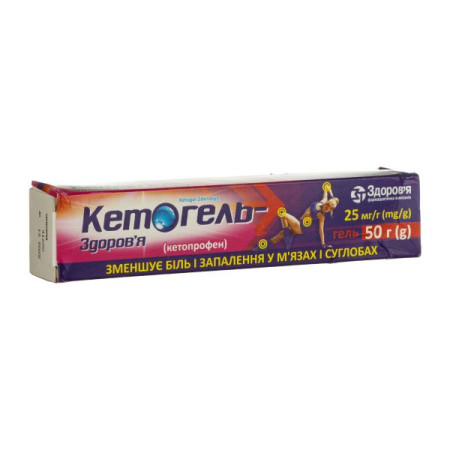Voltaren Forte emulsion gel for external use 2.32% tube 100 g

Instructions Voltaren Forte emulsion gel for external use 2.32% tube 100 g
Composition
active ingredient: diclofenac diethylamine;
1 g of emulgel contains 23.2 mg of diclofenac diethylamine, which corresponds to 20 mg of diclofenac sodium;
excipients: isopropyl alcohol, propylene glycol, cocoyl caprylocaprate, mineral oil, polyethylene glycol cetostearyl ether, carbomers, diethylamine, oleyl alcohol, eucalyptus flavoring, butylhydroxytoluene (E 321), purified water.
Dosage form
Emulgel for external use.
Soft, homogeneous, creamy gel from white to yellowish in color.
Pharmacotherapeutic group
Topical agents for joint and muscle pain. Nonsteroidal anti-inflammatory drugs for topical use. Diclofenac.
ATX code M02A A15.
Pharmacological properties
Pharmacodynamics
Diclofenac is a nonsteroidal anti-inflammatory drug with pronounced antirheumatic, analgesic, anti-inflammatory and antipyretic effects. The main mechanism of action is the inhibition of prostaglandin biosynthesis.
Pharmacokinetics
The amount of diclofenac absorbed through the skin is proportional to the area of application and depends on both the total dose of the drug applied and the degree of skin hydration. After topical application of Voltaren Forte (twice a day) to a skin surface area of 400 cm2, the degree of systemic absorption of the drug, defined as the concentration of the active substance in the blood plasma, is equivalent to applying 4 times a day a gel of diclofenac diethylamine with a concentration of 1.16%.
The relative systemic bioavailability of diclofenac when using Voltaren Forte for 7 days is 4.5% compared to 50 mg tablets (at the same dose of diclofenac sodium). Absorption is independent of the use of a moisture-permeable and vapor-permeable dressing.
After applying Voltaren Forte to the skin of the hand and knee joints, diclofenac is found in plasma (where its maximum concentration is approximately 100 times lower than after oral administration of the same amount of diclofenac), in the synovial membrane and synovial fluid.
Diclofenac accumulates in the skin, which serves as a reservoir from which the substance is gradually released into the surrounding tissues. From there, diclofenac mainly enters deeper inflamed tissues, such as joints and ligaments. There it continues to act and is detected in concentrations up to 20 times higher than in plasma.
Diclofenac is metabolized partly by glucuronidation and mainly by hydroxylation to form several phenolic derivatives, two of which are pharmacologically active, but to a much lesser extent than diclofenac.
Diclofenac and its metabolites are excreted mainly in the urine. The terminal half-life of diclofenac from blood plasma is on average 1–2 hours. Four metabolites, including two active ones, also have short half-lives of 1–3 hours. One of the metabolites, 3´-hydroxy-4´-methoxydiclofenac, has a longer half-life but is practically inactive.
In renal failure, accumulation of diclofenac and its metabolites in the body is not observed. In chronic hepatitis or non-decompensated cirrhosis of the liver, the kinetics and metabolism of diclofenac are not changed.
Indication
Treatment of pain, inflammation and swelling in:
soft tissue injuries: injuries to tendons, ligaments, muscles and joints (e.g. due to dislocation, sprain, contusion) and back pain (sports injuries); localized forms of soft tissue rheumatism: tendinitis (including "tennis elbow"), bursitis, shoulder syndrome and periarthropathy.
Symptomatic treatment of osteoarthritis of small and medium-sized superficial joints, such as finger joints or knee joints.
Contraindication
Hypersensitivity to diclofenac or other components of the drug. History of attacks of bronchial asthma, angioedema, urticaria or acute rhinitis caused by taking acetylsalicylic acid or other nonsteroidal anti-inflammatory drugs. Last trimester of pregnancy.
Interaction with other medicinal products and other types of interactions
Since systemic absorption of diclofenac following topical application is very low, interactions are unlikely. Concomitant use of Voltaren Forte with other systemic non-steroidal anti-inflammatory drugs and steroids may increase the incidence of side effects.
Application features
Use with caution with oral nonsteroidal anti-inflammatory drugs.
The possibility of developing systemic side effects (which occur with the use of systemic forms of diclofenac) should be considered when applying the drug to larger areas of skin or for a longer period of time than recommended.
If any skin rash appears, treatment with the drug should be discontinued. Voltaren Forte should not be used under an airtight occlusive dressing, but it may be used under a non-occlusive dressing.
Voltaren Forte contains propylene glycol, which may cause mild localized skin irritation in some people, as well as butylhydroxytoluene, which may cause localized skin reactions (e.g. contact dermatitis) or irritation of the eyes and mucous membranes.
Ability to influence reaction speed when driving vehicles or other mechanisms
Does not affect.
Use during pregnancy or breastfeeding
Clinical experience in pregnant women is limited. Like other nonsteroidal anti-inflammatory drugs, Voltaren Forte is contraindicated during the third trimester of pregnancy due to the possible development of labor weakness, fetal renal dysfunction with subsequent oligohydramnios and/or cardiopulmonary toxicity with premature closure of the ductus arteriosus and pulmonary hypertension.
It is not known whether diclofenac is excreted in breast milk when applied externally, therefore the use of Voltaren Forte is not recommended during breastfeeding. However, if there are compelling reasons for using the drug during breastfeeding, the drug should not be applied to the mammary glands or large areas of skin and should not be used in large amounts or for prolonged periods.
There are no data on the effect of diclofenac on human fertility when applied topically.
Method of administration and doses
The drug is intended for external use only.
Adults and children over 14 years of age apply the drug 2 times a day, the analgesic effect lasts up to 12 hours. Voltaren Forte is applied 2 times a day, morning and evening, lightly rubbing into the skin at the site of pain. The amount of the drug used depends on the size of the affected area (for example, 2–4 g, which is the size of a cherry or walnut, is enough to apply to an area of 400–800 cm2).
After applying the drug, hands should be washed, except when this is the area to be treated.
The duration of therapy depends on the indication and effectiveness of the treatment. The drug should not be used for longer than 14 consecutive days for soft tissue injuries or rheumatism and for longer than 21 days for joint pain of arthritic origin, unless otherwise recommended by a doctor.
If after 7 days of treatment the patient's condition has not improved or worsens, it is necessary to consult a doctor.
Elderly patients do not require dose adjustment.
Children
Voltaren Forte is not recommended for use in children under 14 years of age.
Overdose
Overdose is unlikely due to the low absorption of diclofenac into the systemic bloodstream when applied topically.
However, in case of accidental ingestion of the drug, side effects typical of an overdose of diclofenac tablets may occur (the contents of one tube of Voltaren Forte 50 g are equivalent to 1 g of diclofenac sodium). In such a case, symptomatic treatment is indicated with the use of therapeutic measures carried out for the treatment of poisoning with non-steroidal anti-inflammatory drugs.
Adverse reactions
Side effects include mild temporary skin reactions at the application site. In rare cases, allergic reactions may occur.
Infections and infestations
Rare (<1/10,000): pustular eruptions.
On the part of the immune system
Rare (<1/10,000): hypersensitivity reactions (including urticaria), angioedema.
From the respiratory system
Rare (<1/10,000): bronchial asthma.
Skin and connective tissue disorders
Common (≥1/100; <1/10): rash, pruritus, eczema, erythema, dermatitis, including contact dermatitis.
Uncommon (≥1/10,000; <1/1,000): bullous dermatitis.
Rare (<1/10,000): photosensitivity reactions.
If adverse reactions occur, treatment should be discontinued and a doctor should be consulted.
Expiration date
3 years.
Storage conditions
Store out of the reach of children at a temperature not exceeding 30 °C.
Packaging
100 g of the drug in aluminum laminated tubes, closed with screw-on polymer caps, white or blue, round or triangular in shape. 1 tube in a cardboard box.
Vacation category
Without a prescription.
Producer
GSK Consumer Helsker S.A.
Location of the manufacturer and its business address
Rue de Letra, 1260 Nyon, Switzerland.
There are no reviews for this product.
There are no reviews for this product, be the first to leave your review.
No questions about this product, be the first and ask your question.













